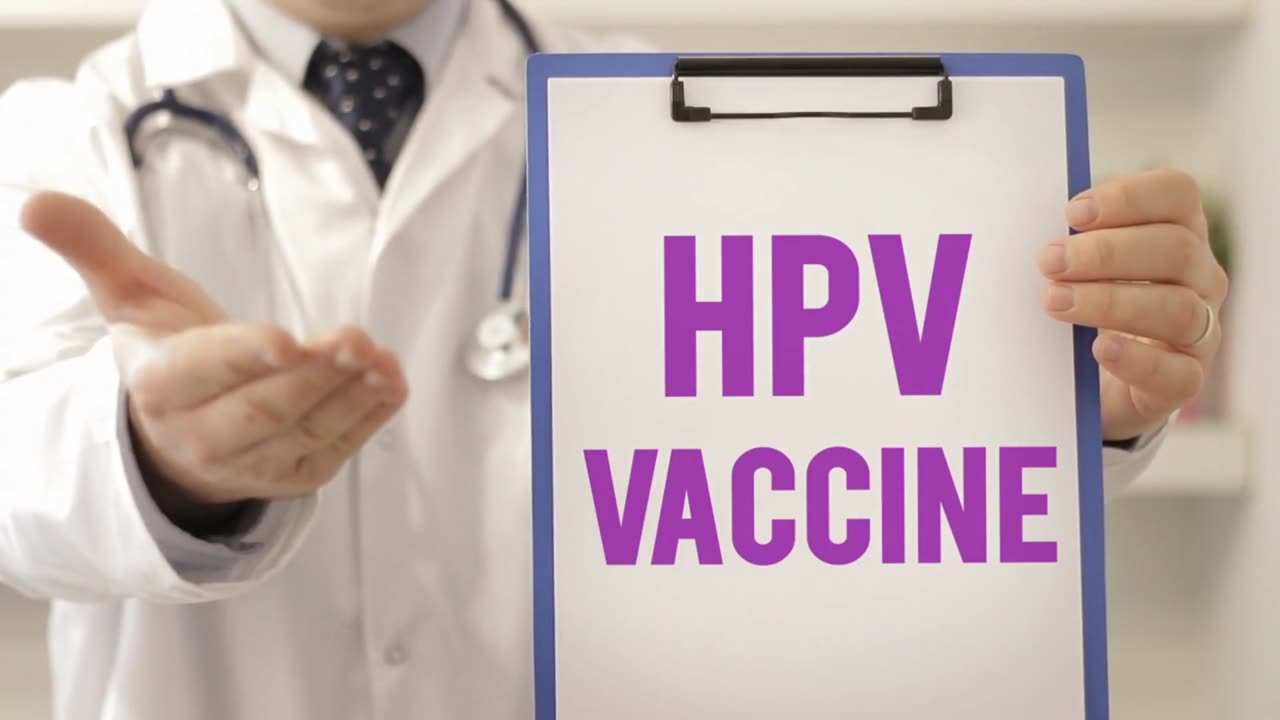Premium Only Content

"HPV Vaccine: Empowering Women's Health & Preventing Cervical Cancer"
In this video, we provide you with everything you need to know about the HPV vaccine. With the human papillomavirus (HPV) being the leading cause of cervical cancer worldwide, resulting in countless deaths annually, it's crucial to have a solid understanding of this topic.
Cervical cancer stands as one of the top killers among women, claiming a life every two minutes. Shockingly, in 2020 alone, 342,000 women lost their lives to this disease, with 90% of them residing in low- and middle-income countries. However, there is hope. The HPV vaccine has proven to be the most effective method of prevention against cervical cancer.
According to the World Health Organization, girls between the ages of nine and 14 should receive the HPV vaccine. It's disheartening to see that despite the availability of this vaccine for almost two decades, its global coverage remains quite low. The majority of these unfortunate cases could have been prevented with proper vaccination and screening programs.
Now, let's delve into what HPV truly is. The human papillomavirus is one of the most common sexually transmitted infections (STIs) globally. It's estimated that by the age of 45, four out of five men and women will have encountered at least one HPV infection. While the virus naturally clears in 90% of individuals, it can lead to various cancers, including cervical cancer, in some cases.
HPV infections can occur in anyone who is sexually active, primarily through sexual contact. However, transmission can also happen through skin-to-skin contact or from infected mothers to their babies. Connecting the dots between HPV and cancer, we find that HPV infection is responsible for 90% of cervical cancers and significant proportions of other types, such as anal, vaginal, vulvar, penile, and throat cancers.
So, how does HPV cause cervical cancer? By infecting the cells in the cervix, HPV alters their communication and replication patterns. In some individuals, this leads to uncontrolled cell multiplication, eventually resulting in cancer. However, cervical cancer can be prevented efficiently.
Enter the HPV vaccine, the most effective method of safeguarding against cervical cancer. Administered before exposure to the virus, the vaccine is recommended by the World Health Organization for girls aged nine to 14, when most are not yet sexually active. As for its safety and efficacy, the vaccine has shown high effectiveness (97%) in preventing the HPV-16 and HPV-18 strains, responsible for 70% of cervical cancer cases. Additionally, vaccines offering protection against HPV-6 and HPV-11 have proven nearly 100% effective in preventing genital warts.
It's important to note that HPV cannot be identified by mere visual inspection. Infection can be asymptomatic, and individuals can transmit the virus unknowingly. Visible signs of the virus are generally limited to genital warts, making it essential to prioritize prevention.
Empower yourself with knowledge about the HPV vaccine, women's health, and the prevention of cervical cancer. Join us in our efforts to eliminate this devastating disease worldwide. Together, we can make a difference. Don't forget to like, comment, and share this video to raise awareness. Let's protect women's health and save lives.
-
 LIVE
LIVE
Lofi Girl
2 years agoSynthwave Radio 🌌 - beats to chill/game to
349 watching -
 9:27
9:27
MattMorseTV
2 days ago $17.85 earnedHe just lost EVERYTHING.
73.2K114 -
 7:10:39
7:10:39
MyronGainesX
1 day agoFormer Fed Explains Serial Killer Israel Keyes, Yahweh ben Yaweh, And The El Rukn Gang, And Police Shooting Reactions!
132K35 -
 4:22:33
4:22:33
Due Dissidence
14 hours agoGaza STARVATION Hits Tipping Point, Flotilla CAPTURED, Bongino BREAKS SILENCE, Maxwell MEETS DOJ,
53.5K133 -
 10:52:37
10:52:37
GritsGG
15 hours agoWin Streaking! Most Wins 3180+! 🔥
95.1K1 -
 3:01:03
3:01:03
This is the Ray Gaming
7 hours agoSunday Night LIVE | Rumble Premium Streamer
27.9K -
 2:42:31
2:42:31
Barry Cunningham
13 hours agoPRESIDENT TRUMP IS SAVING AMERICA ONE DEAL AT A TIME! UNBELIEVABLE!
93.1K55 -
 5:12:47
5:12:47
EricJohnPizzaArtist
5 days agoAwesome Sauce PIZZA ART LIVE Ep. #56: Bret “The Hitman” Hart Tribute with SoundBoardLord!
51.3K8 -
 1:38:08
1:38:08
HELMETFIRE
8 hours ago🟢GAMING WITH FIRE EP4🟢RUMBLE TAKEOVER!🟢
35.4K -
 5:16:57
5:16:57
iCheapshot
9 hours agoCheap Plays Warzone Again? What!?
31.4K1